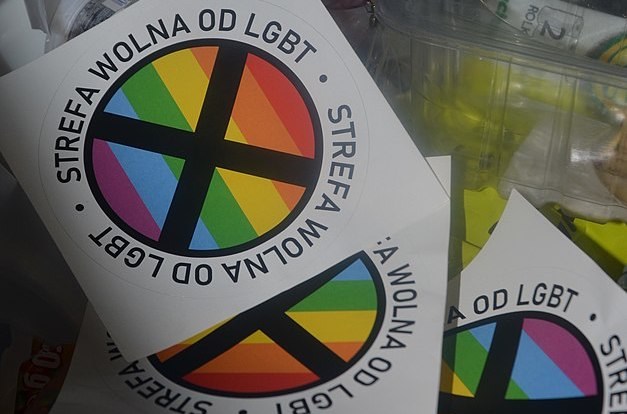Three Flemish cities have jointly called out the Polish government for actively stoking homophobia in the country by promoting the creation of "LTBGQ-free zones."
The cities of Leuven, Ghent and Bruges sent a joint letter to the Polish ambassador in Belgium, expressing concern over the Polish government's actions which they referred to as a violation of human rights.
Ahead of national elections in Poland, the ruling Law and Justice (PiS) party launched a campaign fueling prejudice and hatred against LGBTQ communities in the country, encouraging the creation of zones where gay, lesbian, transgender and queer people were not allowed.
"87 local Polish authorities —municipalities, provinces and regions— have already adjusted their regulations and declared themselves 'gay and transgender free'," the cities wrote in a statement, Het Nieuwsblad reports.
While not enforceable, the fiercely conservative party's rhetoric has enabled the exclusion and stigmatisation of LGBTQ communities in the public space, effectively allowing homophobic sentiment to be put on display.
"Several restaurants and hotels have been putting out 'LGBT prohibition' stickers recently," the cities' statement said, in reference to the use of the anti-LGBTQ stickers which have also spurred controversy for a conservative Polish magazine who started issuing them.
The Polish government's anti-LGBTQ push came as a response to a move by the mayor of the capital and Warsaw, who expressed his intention to follow World Health Organisation guidelines encouraging schools to integrate LBGTQ issues into the curricula.
The move has drawn condemnation from the Polish Ombudsman, who in July said the government was "treading on the margins of free speech," with several members of the LGBTQ community declaring they no longer felt safe in the country.
In the letter, Ghent, Leuven and Bruges called on other EU cities to speak against Poland's anti-LGBTQ push by addressing a letter to the Polish ambassador in their country.
"Non-discrimination on the grounds of sexual orientation or gender identity and expression is fundamentally acquired European right," Leuven city councillor Lies Corneillie told Het Nieuwsblad.
Leaders in the three Flemish cities said that cities and municipalities must be places where "everyone can develop," adding: "When fundamental rights and freedoms are violated, it is our duty to raise our voices."
Gabriela Galindo
The Brussels Times

